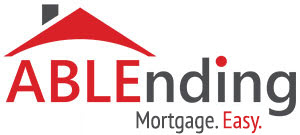Types Of UK Mortgage Fraud
At one point or another most people in the UK have heard the term “mortgage fraud” before. While most people may consider mortgage fraud to be the domain of professional con artists and hardened criminals, this is not necessarily the case.
Mortgage fraud encompasses a wide range of activities and a growing number of otherwise law abiding UK citizens are committing the crime at least once in their lifetime without being aware of it.
Below is a list of several activities which are considered mortgage fraud in the UK.
False Information on Mortgage Applications
Most mortgage applicants in the UK are likely to only ever apply for a mortgage on their own home. An individual who fits into this category will probably remortgage or move home at least once during their lifetime and will therefore apply for residential mortgages on several different occasions.
For this type of borrower there is a limited number of ways they can purposely or inadvertently commit mortgage fraud. These methods include exaggerating income and providing false details on other parts of the application form.
The most likely of the above activities this type of borrower will undertake is exaggerating their income on the mortgage application form. This is usually done to increase the amount they are entitled to borrow. While this may seem harmless if the borrower believes they can meet their monthly mortgage repayments and therefore avoid defaulting on their home loan, it is still considered mortgage fraud.
Additionally, providing false information to the lender on any other part of the mortgage application form will also be considered mortgage fraud. This includes, but is not limited to, personal information such as their name and address and marital status, and historical information such as their previous addresses.
False Documents
Providing false documents to mortgage lenders is fraud. This type of mortgage fraud has become more common in recent years and usually involves submitting false documents as evidence of income or identification. Such documents are widely available through a growing number of suppliers who advertise their businesses on the internet.
The quality of false documents has improved considerably in recent times which has led an increasing number of people to attempt to pass them off as real. Providing a UK mortgage lender with false documentation is a serious form of mortgage fraud and a criminal offense.
Undisclosed Transactions
It is also fraudulent to withhold information from lenders related to property transactions. For example, UK mortgage lenders expect to be told if there is a gifted deposit, discount, cash back or other incentive offered by the seller to the buyer of a property.
All of these things can be regarded as a reduction of the property’s value. UK mortgage lenders will want to know the true market value of the property being transacted as they will be securing a mortgage on it.
It is therefore necessary to inform the lender of all details involved in property transactions. Withholding relevant information can be regarded as mortgage fraud.
Exaggerated Valuations
Finally, a new and highly sophisticated type of mortgage fraud has become wide spread in recent years. The scam involves property professionals such as mortgage brokers, surveyors, and solicitors working together to obtain mortgages on properties that are overvalued.
For example, if the fraudsters negotiate to buy a property for £200,000 the surveyor will value the property at £250,000 and they broker will arrange for a mortgage to be secured against the property to that value. The solicitor will perform the conveyancing on the property and when the mortgage funds are obtained from the lender the vendor will be paid £200,000 and the fraudsters will keep the additional £50,000.
This scam is highly sophisticated and involves several partners working together and is considered to be mortgage fraud by the UK authorities.

Leave A Comment